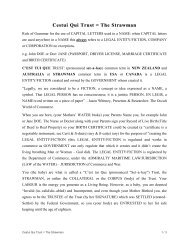Factum probandum and factum probantia are two Latin phrases that are commonly used in the field of law, particularly in the context of legal arguments and evidence. These terms refer to the burden of proof in a legal case and the evidence that is used to support a particular argument or claim.
Factum probandum is Latin for "the thing to be proven." This term refers to the specific claim or argument that must be proven in a legal case. In other words, it is the proposition or statement that the party making the argument is trying to prove to be true.
Factum probantia, on the other hand, is Latin for "the thing that proves." This term refers to the evidence that is used to support the factum probandum, or the argument that is being made. In a legal case, the party making the argument must present evidence that supports their claim in order to meet the burden of proof. This can include testimony from witnesses, documents, physical evidence, and other types of supporting evidence.
The concept of burden of proof is important in the legal system because it helps to ensure that legal decisions are based on evidence and are not simply based on personal beliefs or opinions. The burden of proof is usually placed on the party making the argument, and they must provide evidence to support their claim in order to convince a judge or jury of its validity.
In criminal cases, for example, the burden of proof is placed on the prosecution, who must prove beyond a reasonable doubt that the defendant is guilty of the crime. In civil cases, the burden of proof is generally lower, and the party making the argument must only prove their case by a preponderance of the evidence, meaning that the evidence they present is more likely to be true than not.
In summary, factum probandum and factum probantia are important terms in the legal system that refer to the burden of proof and the evidence used to support a particular argument or claim. Understanding these concepts is essential for anyone involved in the legal process, whether as a lawyer, a judge, or a juror.




